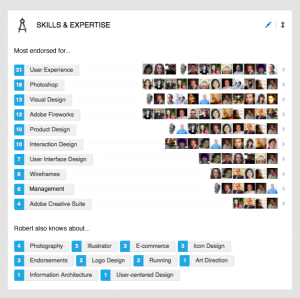Paraguay’s Ministry of Labor will use JANZZ’s web platform for improved placement of job seekers
The Ministry of Labor of the Republic of Paraguay has selected the JANZZ.technology platform ParaEmpleo.mtess.gov.py financed by the Inter-American Development Bank to improve labor intermediation in Paraguay, using state of the art matching technology based on the best occupational ontology available in the world.
The Ministry of Labor, Employment and Social Security (MTESS) of the Republic of Paraguay and JANZZ.technology, headquartered in Switzerland, signed the collaboration agreement concerning the Paraguayan labor market. Thanks to this arrangement, the Swiss company started its first project in Latin America. As a result, JANZZ.technology will install its platform called ParaEmpleo.mtess.gov.py to improve the placement of young jobseekers. Economy Master Guillermo Sosa, Minister of Labor, and Diego Rico, vice-president of customer integration and Deputy CEO of JANZZ.technology, met to finalize details of the project and review the various advantages of this innovative technology, which in addition to Paraguay serves more than 150,000 applicants and employers in 40 different languages in five countries. The platform breaks the scheme of intermediation by keywords, incorporating taxonomies, an ontology approach and semantics, coupled with the best technologies. This allows that job seekers and employers can be matched in multiple dimensions including soft skills, training, experience, availability and geo-location. The platform has more than 100,000 man-hours of development and brings its new version to Paraguay.
Through this new ParaEmpleo.mtess.gov.py web platform, MTESS wants to offer the most advanced technology for job matching. To date more than 25,000 applicants have registered in the PARAGUAY database. Once the service is completed, these young people will be able to access jobs according to their competences and abilities. This agreement is made within the framework of the “Program to Support Labor Insertion” (PR-L1066), financed by the Inter-American Development Bank, under a loan agreement with the Republic of Paraguay.
JANZZ.technology is the best partner for MTESS as it has years of work experience that have allowed it to accumulate extensive experience in the field of occupational data with effective solutions in Spanish and for its comprehensive and multilingual offer of standard classifications. The company is very excited about the opportunity to participate in strengthening the labor market in Paraguay and hopes to collaborate with MTESS.
The Inter-American Development Bank (IDB)
The Inter-American Development Bank is one of the main sources of long-term financing for economic, social and institutional projects in Latin America and the Caribbean. In addition to loans, grants and credit guarantees, the IDB carries out cutting-edge research projects to provide innovative and sustainable solutions to the most urgent problems in these regions. Created in 1959 to help accelerate progress in its developing member countries, the IDB works every day to improve lives.
The Ministry of Labor, Employment and Social Security (MTESS)
The functions of the Ministry of Labor, Employment and Social Security of Paraguay are to determine labor, employment and social security policies, as well as to improve working conditions and respect for workers’ fundamental rights within a democratic framework, and to monitor social dialogue. Master Guillermo Sosa has held the post of Minister of Labor, Employment and Social Security since April 2014, previously serving as head of the Ministry’s Office.
JANZZ.technology
JANZZ.technology is a technology and consulting company dedicated to the semantic matching of skills and employment, and the use of complex data on skills and employment. It offers white-label products and SaaS/DaaS solutions for modelling, analyzing and using big data in job portals, public organizations such as public employment services and company job boards. JANZZ.technology’s products enable precise multilingual matching of qualifications, skills and competences thanks to the latest semantic technologies. In this way, matching problems in the labor markets are significantly reduced and big data is transformed into smart data.


